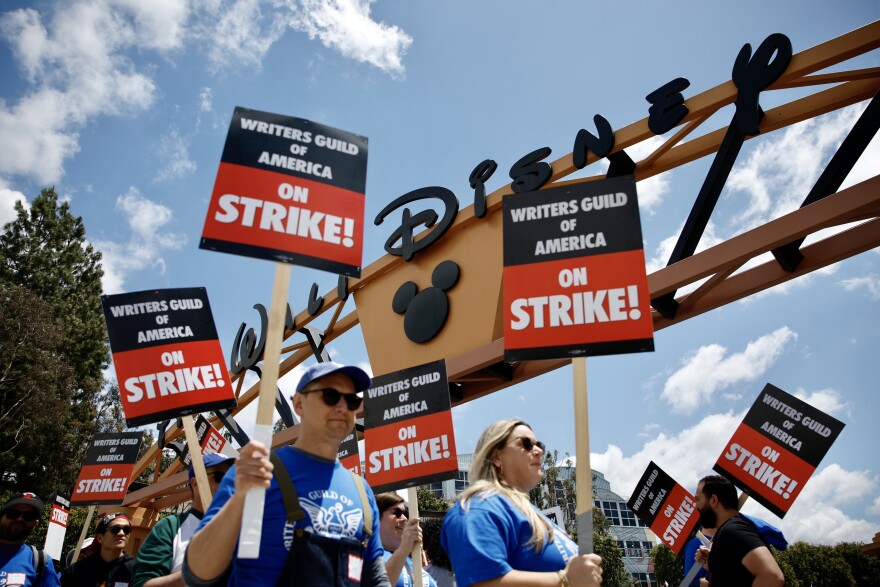On May 2, 2023, the Writers Guild of America (WGA) launched a strike against the Alliance of Motion Picture and Television Producers (AMPTP) that has now lasted over 100 days. It has surpassed its 99-day strike that took place in 2007 through 2008 and cost the Los Angeles economy a total of $2.1 billion according to the Milken Institute.
The authorization to strike was reached in mid-April, wherein 9,020 writers voted to strike out of a total of 9,218 ballots cast, a number that comprises 97.85% of the vote. 78.79% of eligible WGA members voted.
According to the WGA, the strike was initiated to address that “writers are not keeping up.” The WGA’s proposals express significant issues faced by writers in the entertainment industry today. This includes the conversion to a streaming-first model, also known as subscription video on demand (SVOD), which services like Netflix exemplify. Among other issues are the gradual reduction of writing rooms to “mini-rooms”, disproportionate residuals, and the introduction of generative AI in the creation of literary material such as scripts.
On its website WGA Contract 2023, the WGA includes stories from striking members that highlight their frustrations with these issues. One comedy-variety writer states, “then the parent company started a streaming platform and moved the episodes on to it, and our residual checks abruptly went from from real money to actual pennies.”
Also on its website, the WGA released an update on negotiations on Aug. 24, following a meeting that took place two days prior, the participating parties included AMPTP President Carol Lombardini and four CEOs representing struck companies.
In the update, the WGA indicates it finds the AMPTP’s proposals insufficient for the following reasons:
- AMPTP proposed a second step, or a screenplay deal wherein a writer is hired for the first draft and one rewrite. However, the WGA notes that this only applies to a “statistically tiny category of screenwriters.”
- AMPTP extended Appendix A rates and guarantees to SVOD writers, but only for comedy-variety programs like “Saturday Night Live” or “The Tonight Show”
- The companies proposed a minimum basic agreement (MBA) guarantee of staff size and duration, which the WGA called “toothless” due to alleged limitations and omissions.
- It was proposed that writing teams consisting of two writers would receive pension and health diversion (P&H) contributions as individuals—but not teams of three or more. This marks an apparent concession on the part of the AMPTP, as previously they had entirely rejected the WGA’s proposal for each member of a team to receive P&H.
- Proposals regarding Artificial Intelligence (AI) and residuals have seen movement. On the former, however, the WGA states that “they continue to refuse to regulate the use of our work to train AI to write new content for a motion picture.” On the latter, the WGA states the AMPTP believes it has made a concession—that they“ can return in 2026 to ask once again for a viewership-based residual” and not know how well a product is performing in the meantime.
The WGA states that the offer made by the struck companies was “a version of giving with one hand and taking back with the other.” It states that it remains willing to directly negotiate with the struck companies to end the strike.
Lombardini echoed this sentiment in the AMPTP’s report of the negotiations, highlighting that “our priority is to end the strike so that valued members of the creative community can return to what they do best and to end the hardships that so many people and businesses… are experiencing.”
Meanwhile, on Aug. 29, late-night hosts Stephen Colbert, Jimmy Fallon, Jimmy Kimmel, Seth Meyers, and John Oliver announced a partnership with Spotify to host a podcast entitled “Strike Force Five” to discuss the ongoing strike and the complex factors behind it. The comedians have promised to give the proceeds of the podcast to writers on each of their casts who are affected by the strike.
Kevin Klowden, chief global strategist of the Milken Institute, predicts the strike will cost the national economy upwards of $5 billion.

